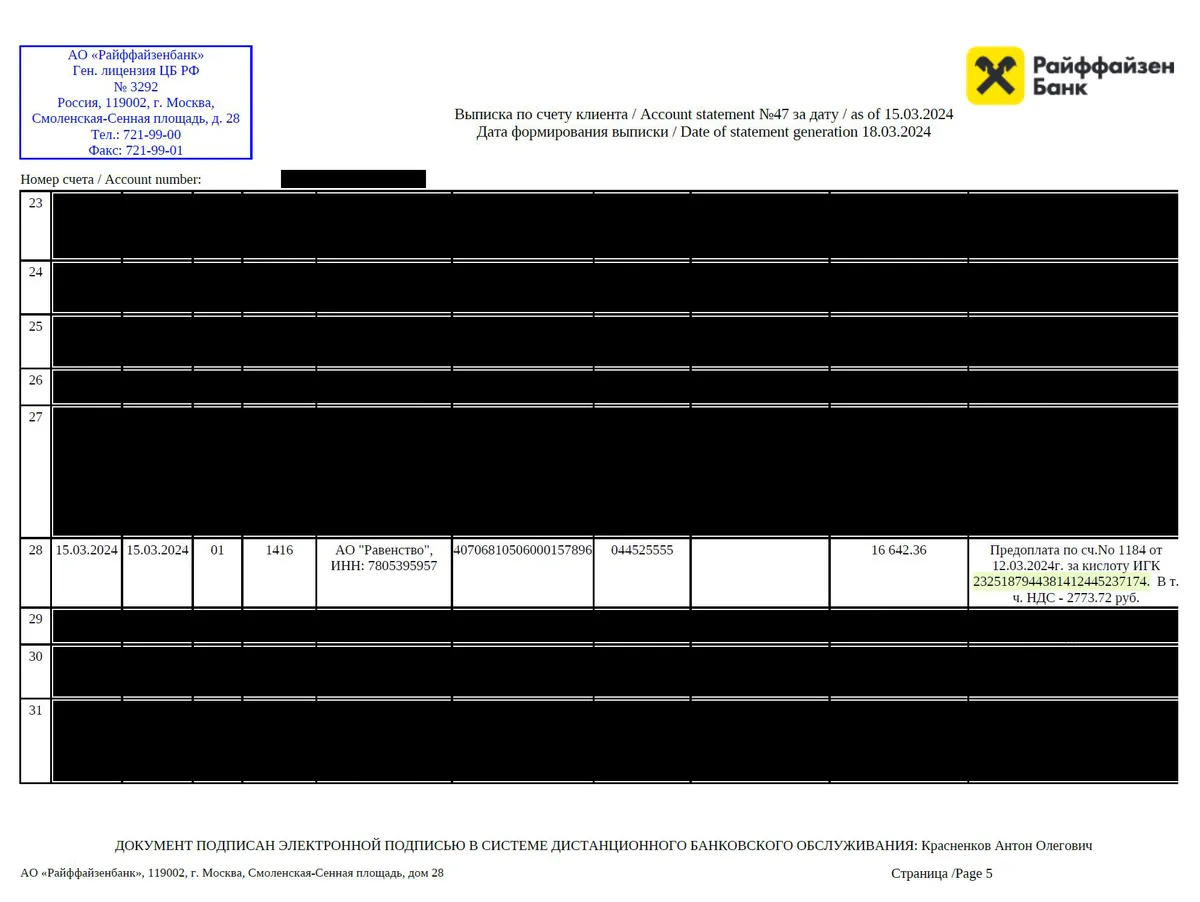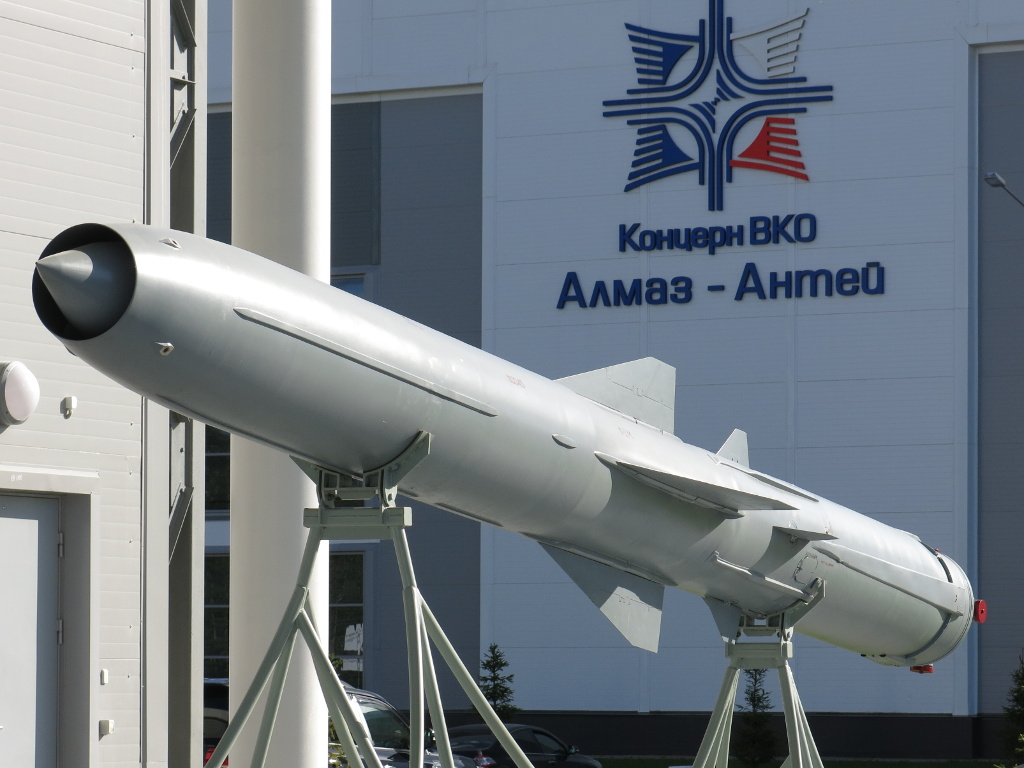Raiffeisen Bank Profits from Firms Supplying Russian Military
3 February, 2025 Raiffeisen Bank headquarters in Vienna. Photo from open source Raiffeisen Bank International (RBI) earned EUR1 billion in profit after tax from its Russian unit in the first three quarters of 2024, according to Bloomberg.
Raiffeisen's Russian unit received more than 62 million rubles (£620,000) in fees for its services from Russian Unihim chemical company last year, bank statements and other documents show. That firm supplied a sanctioned company with ingredients needed for producing military systems. Unihim is Russia's largest producer of inorganic chemicals and high-purity substances, and it supplied a sanctioned Russian company that later developed military products.
Representatives of European governments believe that RBI most likely has other clients who make supplies to the Russian defense industry.
 A bank statement from Unihim, a non-sanctioned company, showing a payment from Ravenstvo company, a sanctioned company. Photo credits: Bloomberg
A bank statement from Unihim, a non-sanctioned company, showing a payment from Ravenstvo company, a sanctioned company. Photo credits: Bloomberg
At the same time, the bank's spokesperson claims that RBI is complying with all relevant sanctions against Russian companies, especially those imposed by the European Union, the United States, and the United Kingdom.
The problems with exiting
EUR1 billion of profit from the Russian unit in the first three quarters of 2024, almost 50% of the profit earned by the Raiffeisen group as a whole. And more than double what this unit earned in the two full years before the invasion.
In the same nine-month period, the bank paid EUR277 million in taxes to the Russian budget. However, the bank cannot transfer its assets to its parent company in Austria due to capital controls. As a result, the bank has accumulated EUR4.4 billion of excess capital, which is "stuck" in Russia.
Local businesses, like all lenders operating in Russia, are regulated by the central bank in Moscow. And it is considered a Russian business entity under Russian law. This makes it very difficult to sever ties with clients, even if they are under sanctions or cooperate with the military.
Russia allows account closure only in a limited number of cases and does not recognize sanctions imposed on its companies. Representatives of the bank claim that they have been trying to decide how to withdraw from Russia for three years. It has been under pressure from U.S. regulators and the European Central Bank to speed up its withdrawal.
Raiffeisen's Russian unit is among the top ten lenders that Russia considers "systemically important" for its banking system. Any exit of such a bank from the Russian market must be approved by a commission and signed by Putin himself. The documents show that Unihim supplied goods to the Russian company Ravenstvo.
In particular, for a Russian government project that involves the development and modernization of platforms and ammunition for multiple launch rocket systems and glaiding bombs.
 Oniks missile mockup. Photo from open sources
Oniks missile mockup. Photo from open sources
The Ravenstvo company develops and manufactures navigation radar systems and is a division of the sanctioned Granit-Electron concern. It creates key elements of missile systems, including automatic control systems for Onyx missiles.
Previously, investigative journalists exposed nine companies from the Czech Republic, Poland, and Switzerland that supplied sanctioned industrial equipment to Russia.